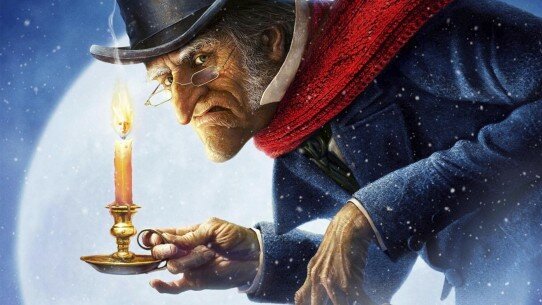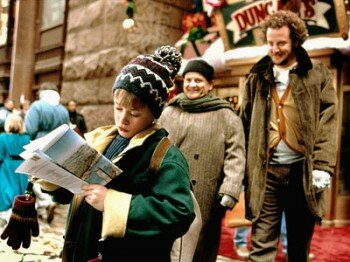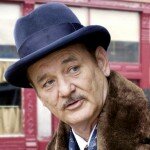Every year, audiences worldwide are bombarded with Christmas films on TV and in the cinema; TV shows often give an episode the ‘Winter Wonderland’ treatment. That of course stems from Hollywood – as the dominant figure, their view is projected onto the world to create a concept of the celebration. But why should Australians believe this when it has no relevance to our climate or culture – should we really be expected to believe that it’s only Christmas if it snows? If we tried to shy away from it, would films reflecting a summer culture create more resonance? Or do we live with the increasingly commercial Hollywood perspective?
Ok, in the fat man’s defence he comes from the North Pole, which is a very cold place. Duh. But really, by the time he comes Down Under what’s the point of him being in a one-horse open sleigh? He ain’t dashing through the snow. This example doesn’t even stem from film; most Christmas carols also paint a wintery picture. But Australians have no affiliation with this. So why do our broadcasters choose to promote it? Well the obvious reason is ratings. Most people are home on Christmas night and want to snuggle up by the warm fire with their cocoa and watch a heart-warming tale. Oh sorry, wrong region. Christmas in Adelaide in 2009 was a perfect 25° and I was cooling myself from the sun with chilled wine. But the Nine Network’s film of choice on Christmas night was Elf (2003). While it’s a decent turn from Will Ferrell that plays with the Santa Claus myth, it very much reflects the Hollywood (American) interpretation; with snow and decoration overkill. It must be nice for Americans and Europeans to see Christmas as a Winter Wonderland with no worries – but why aren’t there films that explore different sides to the Silly Season?
|
Home Alone |
Although the weather difference is the big one, many people now think of Christmas and retail as intertwined – SALES! A very powerful human instinct is the one to spend, and for the poor suckers (myself included) who work in the industry, late-night trading and increased people traffic are hassles in between trying to fit your own shopping in. Elf touches on that with the character of Jovie, Buddy’s love interest who doesn’t see the jolly side of things – and it’s something you can truly sympathise with. But has a Christmas film ever been made about people working the crazy hours? Doubt it. Why? Because those who just shop really don’t give a shit, it’s that simple. And therefore the global film industry probably doesn’t see this idea as a viable investment. However, I have the impression that if something around this concept was a comedy, it could work. Look at Clerks (1994): a clever, funny film about a convenience store guy who just doesn’t want to be there. Not Christmas related, but it’s the principle. Really, Home Alone (1990) could be set at any time of the year. Christmas just makes it funnier and the snow gives them more room to play around with ideas. So would a retail-based film be more reflective of the season – not even just for Australians, but for everyone?
So why aren’t Australian Christmas films made? It’s hard to answer. I can’t even think of one off the top of my head. On TV it’s a bit better; soapies Home and Away and Neighbours give their final episodes of the year a Christmassy touch, while Packed to the Rafters has recently done the same. But what to have as the centrepiece for an Australian Christmas film… it has to have the general values of spending time with family and being appreciative. Because that’s something that Hollywood has right; a universal understanding that Christmas is a happy time. Overcoming adversity is usually the go – a family on the poverty line rising above financial difficulties. It would have to be in the summer of course, perhaps with rising electrical bills from using the air conditioner too much. And what’s an Australian Christmas institution? Wait for it… Chrisco hampers! They could be worked in there. Australians are a laidback bunch, and our way of celebrating Christmas reflects that. But every family has some drama, and that could easily be the storyline amidst a festive setting. It’s a myth that the snow and cold seems to make people happier – uh reality check, ever heard of Seasonal Affective Disorder? Australia’s all about the warmth. And this is how Christmas should be reflected – it’s unfair that cinema hasn’t given this proper thought. A White Christmas is unrealistic to us because it stems from a totally different culture – but until a head honcho sees it differently, this is what we’ll be force-fed every year.
 Follow the author Katina Vangopoulos on Twitter.
Follow the author Katina Vangopoulos on Twitter.











